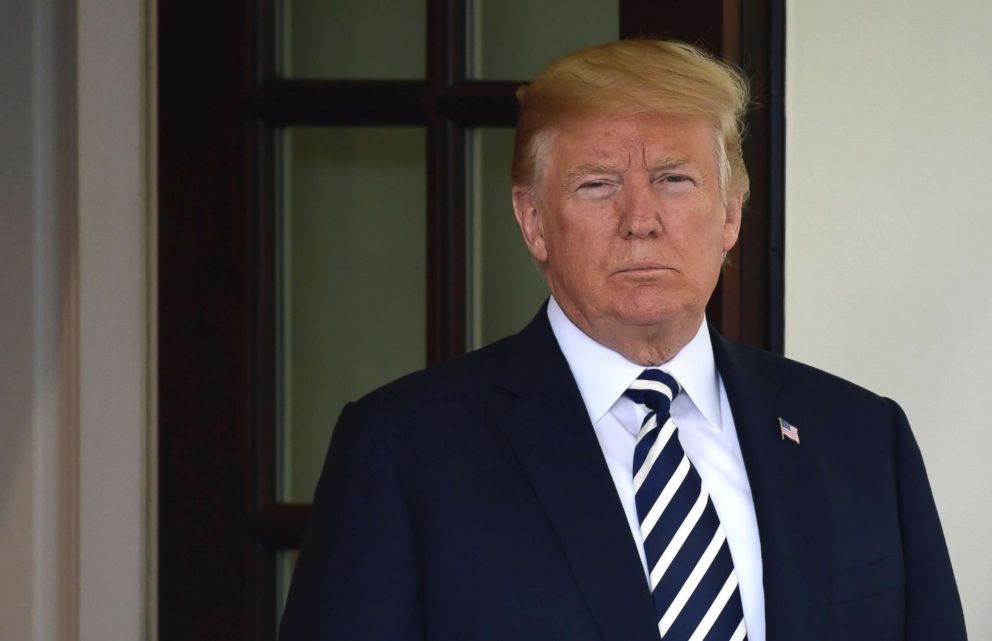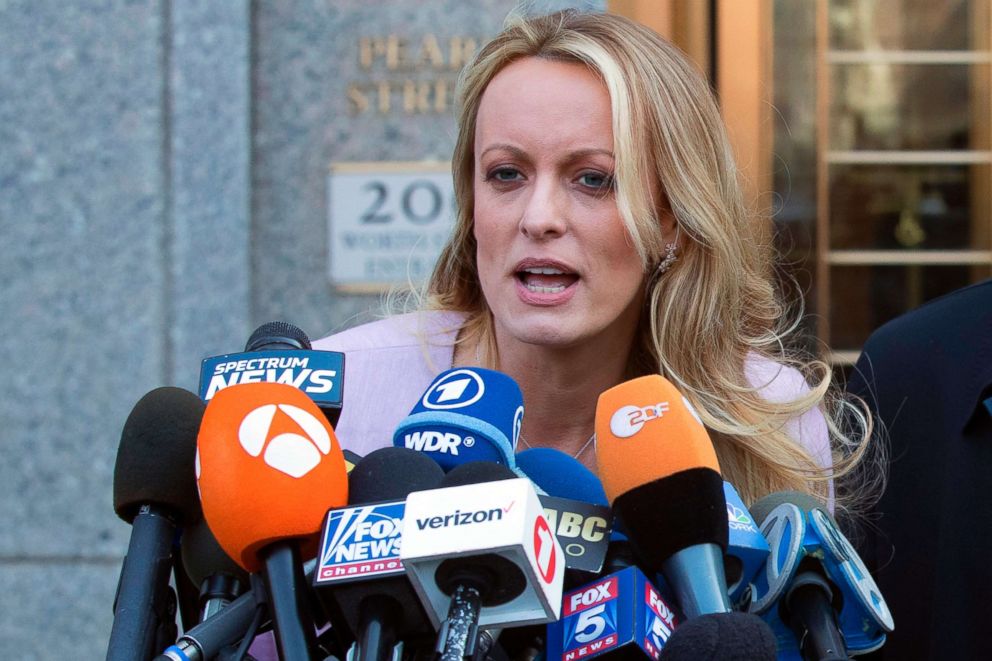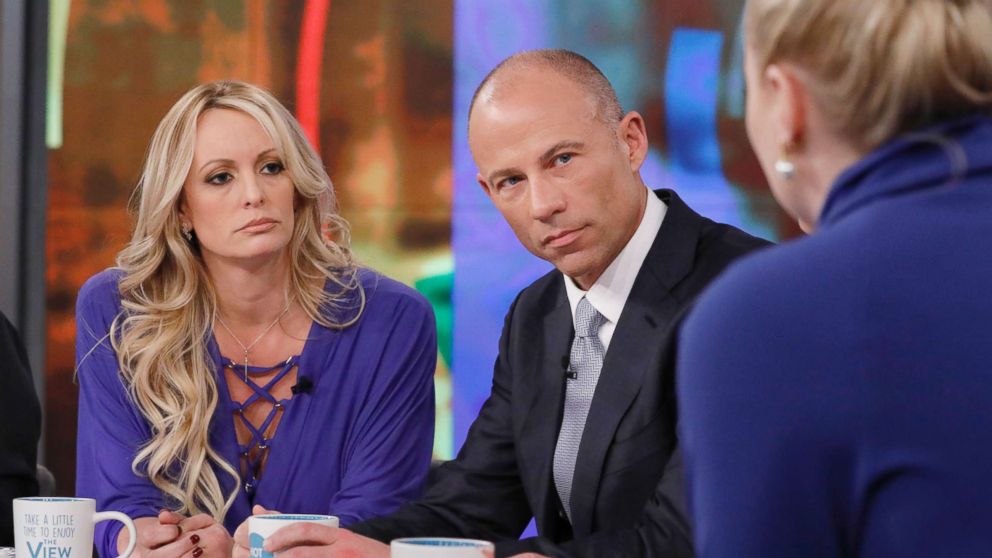Stormy Daniels’ lawyer asks court for expedited deposition of President Trump
The time has come for Stormy Daniels to have her day in court, her lawyer said.
"We want to get on with it," Michael Avenatti said. "There is no reason why the case should continue to be delayed."
One week after Michael Cohen, the former personal attorney to President Donald Trump, pleaded guilty to eight felonies —— including a violation of campaign finance law in connection with his role in negotiating a non-disclosure agreement with Daniels —— Avenatti is asking a federal judge to allow his client’s civil lawsuit against Cohen and Trump to move forward.
The attorney is also seeking to question the president under oath on an expedited schedule.
"I would be prepared to sit across from the president and take his deposition on 48-hours’ notice," Avenatti told ABC News. "I would literally take that deposition anywhere in the world."
Avenatti is not likely to get his wish without a fight from the president, who would likely resist any attempt to compel his testimony.
Daniels, an adult-film star whose legal name is Stephanie Clifford, alleges that she had a sexual encounter with then-businessman Trump in 2006 at a celebrity golf tournament in Lake Tahoe. Trump has denied the allegation.

She filed a lawsuit in March, arguing that the $130,000 hush money pact reached just prior to the 2016 presidential election is invalid. She claimed in court filings that the agreement violated federal election laws and was never legally formed because it lacked a signature from Trump.

Following the April law enforcement raids of Cohen’s New York properties, U.S. District Court Judge S. James Otero placed the entire civil dispute on hold until at least mid-September. Cohen had informed the court that he would assert his Fifth Amendment rights against self-incrimination if questioned about his role in the deal.
But in a Manhattan federal courthouse on August 21, the president’s long-time fixer reversed course when he told a federal judge during a plea hearing that he made the payment to Daniels "in coordination with, and at the direction of" Trump. He did this, he said, "for the principal purpose of influencing the election."
"[N]ow that Mr. Cohen has admitted to his crimes under oath before the district judge in the Southern District of New York, there is no substantive justification for putting this case on hold," Avenatti wrote in a new court filing. "A myriad of litigation activities may occur in this case that would not disturb what remains of Mr. Cohen’s Fifth Amendment rights."
Not so fast, argued Cohen’s attorney Brent Blakely.
Blakely asked the court to extend the stay on the Daniels’ case until after the New York judge determines the length of any prison term for Cohen, because "[I]t is clear that the testimony or discovery he may provide in this case may be used against him at sentencing," according to court documents.
Cohen is scheduled to be sentenced on December 12.
"Until he is sentenced, it is not over," Blakely told ABC News. "My position is the entire case should be stayed until Mr. Cohen is sentenced at which time we can vigorously defend ourselves in court and pursue any claims Cohen may have."
Avenatti said he’s willing to delay questioning Cohen until immediately after his sentencing, but argued there is no longer any reason to keep the rest of the case on ice.
"This was a case that was filed in March and we've been chomping at the bit to get this discovery completed," Avenatti said. "We'll wait until after the sentencing to take [Cohen’s] deposition, but that shouldn't preclude us from taking Trump's deposition. He's going to have to answer questions about what happened in connection with this payment and the cover up."
An attorney for Trump, Charles Harder, joined in Cohen’s arguments that the Daniels’ case should remain on hold. Harder did not immediately respond to a request from ABC News for comment on the new court filings.
Even if Judge Otero decides to restart Daniels’ case, it’s not a given that the president would be required to give personal testimony.
While the US Supreme Court has ruled – in the 1997 Paula Jones harassment case against President Bill Clinton - that a sitting president does not have broad immunity from civil lawsuits arising out of private actions, the justices also cautioned that lower court judges should use discretion to accommodate the president’s schedule and to give deference to the responsibilities of the office.
The next hearing in the case is scheduled for September 10 in Los Angeles.




